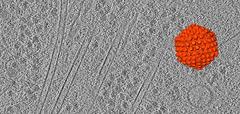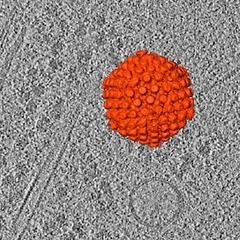URL: https://www.desy.de/news/news_search/index_eng.html
Breadcrumb Navigation
DESY News: High-tech microscopes for infection research
News
News from the DESY research centre
High-tech microscopes for infection research
The German Research Council DFG has granted the Universität Hamburg co-financing for establishing a 15.6 million Euro electron cryo-microscopy facility in the new Centre for Structural Systems Biology (CSSB) on the DESY campus. The German Federal Government will provide 50 per cent of the overall financing and the city of Hamburg will provide the other 50 per cent. The CSSB is a joint initiative of ten research partners from Northern Germany, including DESY. CSSB devotes itself to infection biology and medicine by utilizing structural and molecular biology methods and imaging techniques in conjunction with systems biology approaches.
The planned five electron cryo-microscopes will be funded as part of the German Research Council’s major research instrumentation program. They will complement the research opportunities at DESY's ultra-bright X-ray light sources. Both methods enable three-dimensional imaging of biological structures at the molecular level. With the new super microscopes, scientists plan to study the complex molecular structures and function of pathogens as well as their interactions with host cell components such as proteins and membranes. The insights gained from this research will contribute to the identification of critical steps in the infection process and to the development of novel intervention strategies.“The investment in the pioneering electron cryo-microscopy in Hamburg is of national importance,” emphasised Hamburg’s Senator for Science, Research and Equality, Katharina Fegebank. “Infection researchers from all over Germany will come to the Bahrenfeld campus to use the microscopes and to pursue their research at the ultra-bright DESY light sources.”
Matthias Wilmanns, Scientific Director of CSSB, emphasized: “The establishment of a state-of-the-art electron cryo-microscopy research infrastructure is a key element in CSSB's overall research concept. This facility will provide our scientist with the technology to expand our understanding of host-pathogen interactions and tackle some of the most demanding scientific challenges in infection biology.”
The CSSB is a joint venture of ten academic partners: Universität Hamburg, the University Medical Center Hamburg-Eppendorf (UKE), the Bernhard Nocht Institute for Tropical Medicine (BNITM), the Research Center Borstel (FZB), the European Molecular Biology Laboratory (EMBL), Forschungszentrum Jülich (FZJ), the Hannover Medical School (MHH), the Heinrich Pette Institute, Leibniz Institute for Experimental Virology (HPI), the Helmholtz Centre for Infection Research (HZI), and DESY. The different CSSB research groups will investigate pathogens from all three organism groups: viruses, bacteria, and eukaryotic parasites.
Press releases (German) of the Universität Hamburg and of Hamburg's Authority for Science, Research and Equality





